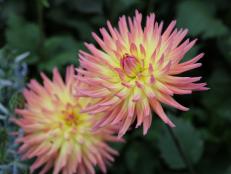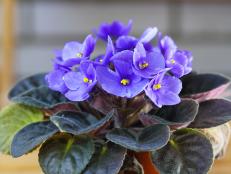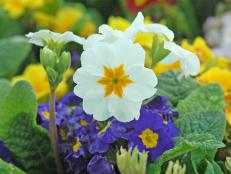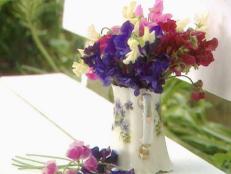Carnation Flower Meaning
Discover details about the symbolism of carnations.

Photo by Ben Rollins
Give a carnation, and you’re speaking volumes in the language of flowers. These classic blooms are florist shop favorites and are given for all kinds of occasions, from birthdays to retirements. Carnation meaning varies depending on the flower color. But at its heart, basic carnation flower meaning embraces the ideas of fascination, distinction and love. The love aspect of carnation meaning includes everything from a mother’s devoted love to a suitor’s passion for his bride.
One of the most well-known stories of carnation flower meaning has to do with the flower’s symbolism of a mother’s love. Early Christians held that carnations sprang from the place where tears fell from the eyes of Mary, the mother of Jesus, as he carried his cross.
In 1907, carnations became the official flower of Mother’s Day. Ann Jarvis, the founder of Mother’s Day, selected carnations because they were her mother’s favorite flower and to her symbolized the purity of a mother’s love. On the first Mother’s Day, Jarvis sought to memorialize her recently deceased mother by sending 500 white carnations to the church where her mother had taught Sunday School.
The history of the carnation traces back to ancient Greece and Rome. At that point in time, carnations were primarily available in peach and pale pink shades. The color was thought to resemble human flesh and carnation flower meaning took on the idea of the incarnation, God being made flesh. This carnation meaning traces to the Latin root “carnis,” which means flesh.
Plant breeding efforts have produced a literal rainbow of carnation flower hues, from red, to purple, to green. Each color of carnation flower has a separate, definitive meaning. A pale red denotes admiration and the idea that “my heart aches for you,” while dark red conveys feelings of deep love and affection.
Pink carnation flower meanings include gratitude and the concept of never forgetting someone. A yellow carnation bloom expresses the idea of rejection and disappointment with someone. White carnations usually carry the thought of purity and sweetness. When given on Mother’s Day, they also are said to bring a mother good luck.
Some carnation petals are solid hues, while others are striped. Solid blossoms embody the idea of an affirmative answer (yes), while striped carnation flower meaning signifies refusal (no). Purple carnations are said to represent carpriciousness, while green carnations seem to be reserved for St. Patrick’s Day and giving to teachers.
Carnations are the official state flower of Ohio, as well as the official national flower of Spain. In Korea, children give parents carnations on Parents’ Day, which is a combination of Mother’s and Father’s Days. For the first wedding anniversary, carnations are the traditional gift. This familiar blossom is also the birth flower for the month of January.














































